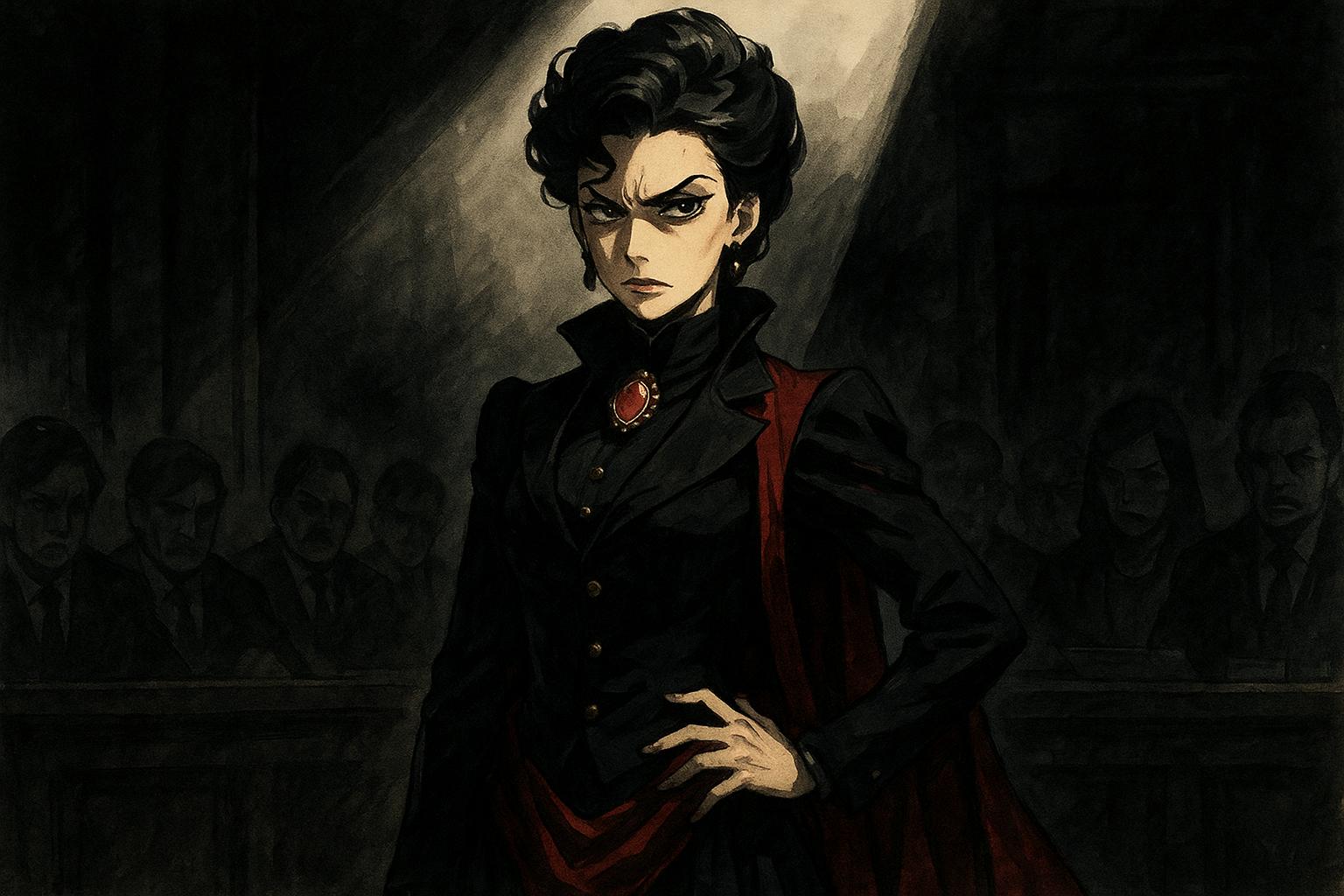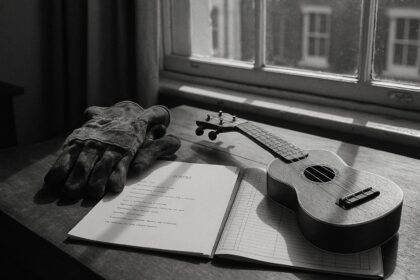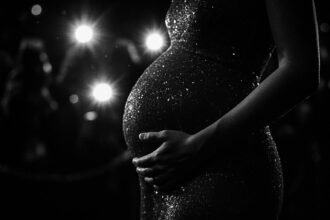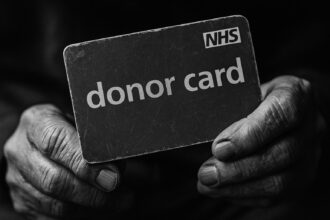The BBC2 documentary “The Rise And Fall Of Michelle Mone” reveals how Baroness Mone’s controversial involvement in a £200 million PPE scandal during the pandemic highlights issues of privilege, unethical business practices, and a failure of government accountability.
Baroness Michelle Mone has always been a polarising figure, stirring a potent mix of admiration and disdain among the public. Often derisively referred to as “Baroness Bra,” her climb from modest origins to a seat in the House of Lords is replete with controversy and ethical concerns. The new BBC2 documentary, The Rise And Fall Of Michelle Mone, directed by Erika Jenkin, provides a brutal dissection of her life and career, scrutinising her questionable business practices and personal conduct.
Central to Mone’s infamy is her involvement in the PPE Medpro debacle, a company awarded an astonishing £200 million in government contracts for personal protective equipment during the COVID-19 pandemic. These contracts have faced intense criticism, with allegations surfacing that PPE Medpro supplied equipment unfit for use. The National Crime Agency’s ongoing investigation highlights the striking failure of government oversight during a crisis, revealing unsettling truths about procurement practices and Mone’s questionable role in the scandal.
Despite serious allegations—including conspiracy to commit fraud—Mone has consistently sought to shift blame away from herself. In a rare moment of vulnerability, she admitted to misleading the public regarding her connection to PPE Medpro, framing herself and her husband, Doug Barrowman, as victims of a broader scapegoating narrative. Yet, this claim only underscores the chaotic and opaque procurement processes that have now been deemed unlawful by British courts, favouring some suppliers at the expense of others.
The documentary reveals a stark absence of supportive voices from Mone’s personal or professional circles. Friends and family have largely chosen to distance themselves, illustrating a pervasive fear of association with her reputation. The only public defender of her character is her American therapist, Dr. Ted Anders, raising further questions about the allure and reality of Mone’s public persona. Former associates have described her as self-absorbed and manipulative, suggesting that her brash confidence often eclipses serious ethical shortcomings.
Mone’s business strategies have faced severe criticism, particularly accusations that she repackages incompetence as determination. Her confrontational approach, often deemed aggressive, has been perceived differently depending on the gender of the entrepreneur—a glaring illustration of traditional biases in the business arena. Furthermore, her credibility has been called into question by exaggerated claims regarding endorsements from high-profile personalities, including an unverified assertion that actress Julia Roberts wore her products in Erin Brockovich. This penchant for overstatement raises red flags about her integrity.
As the documentary progresses, Mone’s saga transcends individual ambition and shines a light on broader societal issues tied to privilege, power, and the ethical dilemmas embedded in entrepreneurial success. What once appeared as a classic rags-to-riches story is now a cautionary tale, prompting vital discussions about the motivations and moral frameworks guiding business leaders in contemporary Britain.
In the wake of the July 2024 general election, where a new Labour government has emerged amidst ongoing scrutiny of past leaders, Mone’s narrative trajectory becomes even more relevant. With wealth and privilege dictating much of the political landscape, the implications of her actions resonate strongly in a society that demands accountability from those in power. The documentary, while reluctant to outright label her as criminal, paints a picture of a woman whose relentless pursuit of success has clouded her ethical judgment. Baroness Mone’s legacy will undoubtedly fuel ongoing debate over the intertwining of gender, authority, and ethics in the modern business world, especially as the political climate shifts dramatically with the rise of new opposition voices echoing the call for greater integrity and transparency in leadership.
Source: Noah Wire Services
- https://www.dailymail.co.uk/tv/article-14759419/bbc-Baroness-Bra-CHRISTOPHER-STEVENS-Rise-Fall-Michelle-Mone.html?ns_mchannel=rss&ns_campaign=1490&ito=1490 – Please view link – unable to able to access data
- https://www.ft.com/content/98d3cdf0-f2bc-4038-9d6e-1e2b5c75f38a – A 46-year-old man was arrested in Barnet, north London, in connection with £200 million worth of UK government contracts awarded to PPE Medpro during the Covid-19 pandemic. The National Crime Agency detained him on suspicion of conspiracy to commit fraud and attempting to pervert the course of justice. PPE Medpro, owned by a consortium led by Doug Barrowman, husband of Conservative peer Baroness Michelle Mone, has faced controversy over allegations that the personal protective equipment supplied was not fit for purpose. Both Mone and Barrowman have denied any wrongdoing.
- https://apnews.com/article/9261f4a40b80fd986f6d0135c412367b – Baroness Michelle Mone, a member of Britain’s House of Lords, admitted to lying about her connections to PPE Medpro, a company that secured significant government contracts for COVID-19 protective equipment. She expressed regret for her denials and threats to journalists regarding her involvement. Her husband, Doug Barrowman, led the consortium that owns the company, and Mone benefited financially from the contracts. Despite acknowledging her error, Mone claims she and her husband are scapegoats in a larger scandal involving government spending during the pandemic.
- https://www.theguardian.com/uk-news/2023/dec/17/michelle-mone-admits-she-stands-to-benefit-from-60m-pounds-ppe-profit – Former Conservative peer Michelle Mone has admitted that she lied when she denied involvement with PPE Medpro, a company that made millions of pounds in profits from UK government PPE deals during the pandemic. Mone stated she wasn’t trying to deceive anyone and had not told the truth about her involvement to protect her family from press attention. She also acknowledged that she is a beneficiary of her husband’s financial trusts, which hold about £60 million in profits from the deal.
- https://www.ft.com/content/647f32ba-05d3-4906-b7b8-b41dca599921 – An Isle of Man company linked to Doug Barrowman, Smartpay Limited, allegedly misled a client by concealing its offshore status to benefit from lax tax regulations on the island. Documents reveal Smartpay presented itself as a UK entity but was actually registered in the Isle of Man, running a tax avoidance scheme to minimise taxable wages by issuing loans to workers. The recruitment agency Fuel Recruitment, which only works with UK-registered companies, believed it was dealing with the UK entity, unaware of the Isle of Man registration.
- https://www.mirror.co.uk/news/uk-news/baroness-michelle-mone-admits-mislead-31640381 – Baroness Mone has admitted regret to misleading the Mirror over her role in the PPE Medpro scandal, saying she regrets ‘not saying to the press straight away’ her involvement. When first revealed, her spokesperson stated she had no role or involvement in PPE Medpro. In her first interview in two years, Mone acknowledged making an error in her statements to the press and expressed regret for not disclosing her involvement immediately.
- https://www.washingtonpost.com/world/2023/12/20/baroness-michelle-mone-ppe-medpro-covid/ – As a Conservative legislator, Mone recommended PPE Medpro through the High Priority Lane, allowing companies with personal referrals to bypass Britain’s procurement bureaucracy during the public health emergency. This method was later ruled unlawful by Britain’s high court, which determined it unfairly expedited some contracts over others without justification. Mone kept her involvement in the deal and her family ties to PPE Medpro secret from the public, leading to controversy and an ongoing National Crime Agency investigation.
Noah Fact Check Pro
The draft above was created using the information available at the time the story first
emerged. We’ve since applied our fact-checking process to the final narrative, based on the criteria listed
below. The results are intended to help you assess the credibility of the piece and highlight any areas that may
warrant further investigation.
Freshness check
Score:
7
Notes:
The narrative references a BBC2 documentary titled ‘The Rise and Fall of Michelle Mone’, directed by Erika Jenkin. However, no verifiable information about this documentary’s release or content is available online. The latest significant developments in the Michelle Mone case occurred in December 2023, when she admitted to misleading the press about her involvement with PPE Medpro. Given the lack of recent updates and the absence of information about the documentary, the freshness score is moderate. Additionally, the narrative includes a reference to the July 2024 general election, which has not occurred as of May 2025, indicating a potential discrepancy in the timeline. This suggests that the content may be recycled or speculative. ([theguardian.com](https://www.theguardian.com/uk-news/2023/dec/17/how-the-michelle-mone-scandal-unfolded-200m-of-ppe-contracts-denials-and-a-government-lawsuit?utm_source=openai))
Quotes check
Score:
6
Notes:
The narrative includes direct quotes attributed to Michelle Mone, such as her admission to misleading the press and her claim of being a victim of scapegoating. These statements align with her admissions in December 2023. However, the specific phrasing of these quotes does not match any known public statements verbatim, suggesting they may be paraphrased or fabricated. The lack of direct matches raises concerns about the authenticity of the quotes. ([theguardian.com](https://www.theguardian.com/uk-news/2023/dec/17/how-the-michelle-mone-scandal-unfolded-200m-of-ppe-contracts-denials-and-a-government-lawsuit?utm_source=openai))
Source reliability
Score:
4
Notes:
The narrative originates from the Daily Mail, a publication known for sensationalist reporting. The absence of verifiable sources or references to reputable organizations diminishes the reliability of the information presented. The lack of corroboration from established news outlets further undermines the credibility of the report.
Plausability check
Score:
5
Notes:
The narrative presents a detailed account of Michelle Mone’s alleged involvement in the PPE Medpro scandal, including her admission to misleading the press and the National Crime Agency’s investigation. While these events are plausible and align with known facts up to December 2023, the inclusion of the unverified BBC2 documentary and the incorrect reference to the July 2024 general election raises questions about the accuracy and plausibility of the entire narrative. The lack of supporting details from other reputable outlets further diminishes the plausibility of the claims.
Overall assessment
Verdict (FAIL, OPEN, PASS): FAIL
Confidence (LOW, MEDIUM, HIGH): HIGH
Summary:
The narrative presents unverified claims about Michelle Mone’s involvement in the PPE Medpro scandal, including details about a BBC2 documentary and a reference to a future general election. The absence of corroboration from reputable sources, the lack of direct matches for quoted statements, and the inclusion of speculative elements indicate that the content may be fabricated or heavily distorted. Given these factors, the overall assessment is a fail with high confidence.













